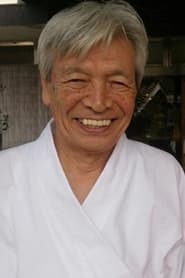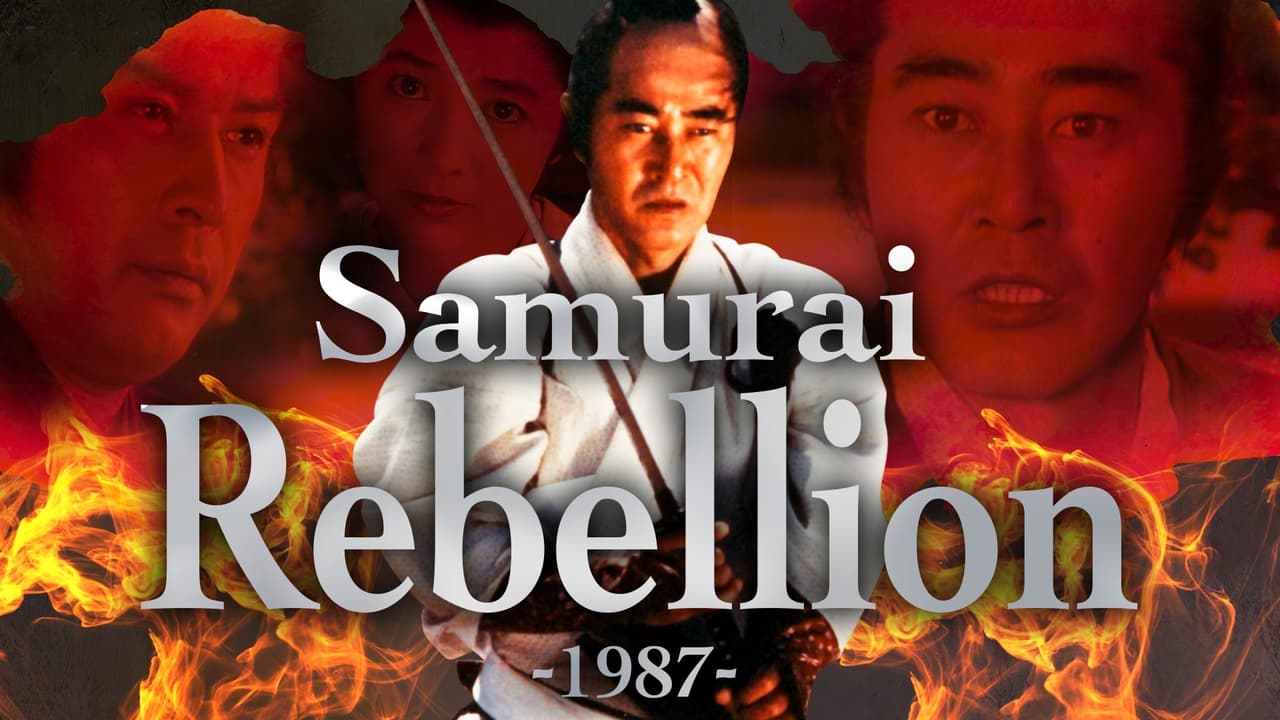
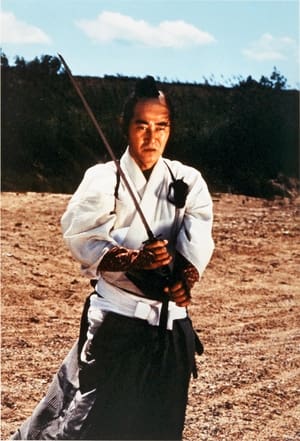
Samurai Rebellion(1987)
Echizen Fukui Domain. Futago Rokubei, who backs down even at the sight of a gecko, is called "Coward Samurai" by others. His sister Kane blames him for not having any marriage proposals. One day, the lord's martial arts instructor, Nito Kouken, kills one of the lord's attendants, Kano, and flees, leading the angry lord to issue an order to kill him. However, there is no one in the domain who can match the swordsmanship of Nito. Rokubei, in order to clear his long-standing dishonor, volunteers to be the one to kill Nito and sets out on the journey, leaving behind Kane who tries to stop him in tears.


Movie: Samurai Rebellion
Top 7 Billed Cast

あらすじ
HomePage
Overview
Echizen Fukui Domain. Futago Rokubei, who backs down even at the sight of a gecko, is called "Coward Samurai" by others. His sister Kane blames him for not having any marriage proposals. One day, the lord's martial arts instructor, Nito Kouken, kills one of the lord's attendants, Kano, and flees, leading the angry lord to issue an order to kill him. However, there is no one in the domain who can match the swordsmanship of Nito. Rokubei, in order to clear his long-standing dishonor, volunteers to be the one to kill Nito and sets out on the journey, leaving behind Kane who tries to stop him in tears.
Release Date
1987-07-02
Average
0
Rating:
0.0 startsTagline
Genres
Languages:
日本語Keywords
Similar Movies
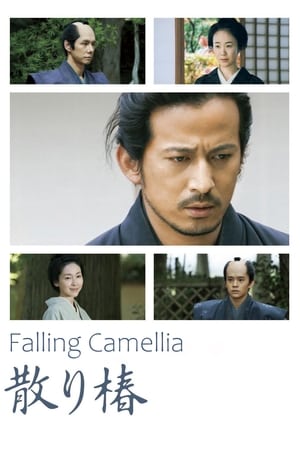 8.2
8.2Falling Camellia(ja)
During the Edo period, a gifted swordsman was exiled from his clan when he questioned the misconduct of his leader. Years after, his dying wife wish was for him to go back to his clan.
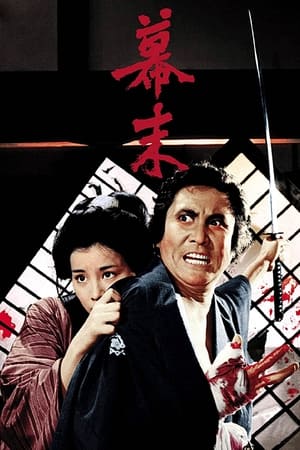 7.2
7.2The Ambitious(ja)
The story of Ryoma Sakamoto, considered to be the architect behind the downfall of the Tokugawa shogunate. He was considered an outlaw by his own clan, hunted by his government, and was despised by supporters of the Shogun as well as the Loyalists for desiring the opening of Japan to the West in order to learn its technology, in the hopes of one day defeating the West with a modern army and navy.
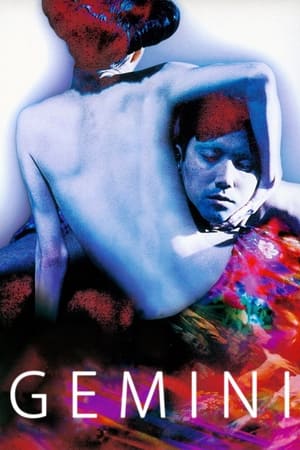 6.6
6.6Gemini(ja)
When his mother's untimely death quickly follows his father's, a doctor begins to believe a killer may be targeting him and his amnesiac wife.
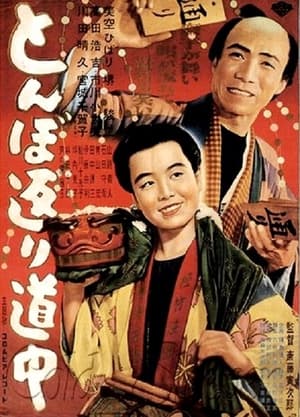 0.0
0.0Somersault on the Way(ja)
A young boy named Chomatsu (Misora Hibari) lives with an old man Denbei near the grounds of Asakusa temple as bell ringers. In their house is an Echigo lion mask, a memento of Chomatsu's deceased father. After several incidents of Echigo lion masks being destroyed in the area, a local kingpin Saheiji shows up at Denbei's demanded he hand over the mask, a request Denbei rejects out of pity for Chomatsu. However, after it is accidentally revealed that the mask contains an important map, Saheiji plots to steal the mask. Chomatsu gets involved after his mother makes a sudden reappearance that sends the boy on a roundabout journey that will reveal the truth about his family.
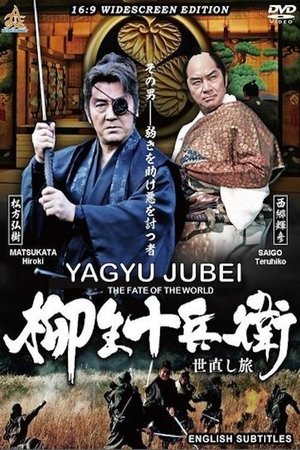 4.0
4.0Yagyu Jubei: The Fate of the World(ja)
The fate of Tokugawa’s world hangs in the balance as Yagyu Jubei is sent on a mission to discover what happened to 10 of the shogun’s spies that never returned. Matsukata Hiroki, one of the last surviving members of the Golden Age of Japanese Cinema proves that he has not lost a step as he portrays an older and wiser Yagyu Jubei in a movie that brings the best of samurai filmmaking into the 21st century. Summoned from semi-retirement by Shogun Iemitsu, Jubei is asked to take to the road and investigate a clan rumored to be preparing explosives for a rebellion. With help from a beautiful female ninja they head into the Shirakawa domain where the fighting skills of both are tested time and again as they strive to destroy a conspiracy that could bring a new Warring States Era. In the 1960's Yagyu Jubei was the signature role of the great Konoe Jushiro, father of Matsukata Hiroki. This brings the character full circle.
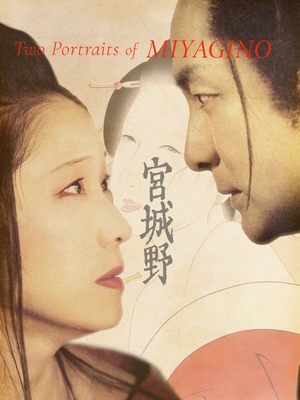 7.5
7.5Two Portraits of MIYAGINO(ja)
In Edo-era Japan, a ukiyo-e artist languishes in his master’s shadow. Creatively stifled, he finds consolation in the company of a prostitute, and becomes entangled in a love triangle. A mystery emerges involving two portraits and the sudden disappearance of the artist Sharaku. Helmed by Cannes-selected director Tatsuji Yamazaki, the film employs kabuki-inspired sequences and stylised sets.
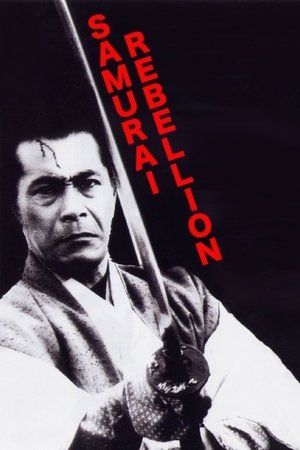 8.2
8.2Samurai Rebellion(ja)
The mother of a feudal lord's only heir is kidnapped away from her husband by the lord. The husband and his samurai father must decide whether to accept the unjust decision, or risk death to get her back.
 7.1
7.1The Lower Depths(ja)
Residents of a rundown boardinghouse in 19th-century Japan, including a mysterious old man and an aging actor, get drawn into a love triangle that turns violent. When amoral thief Sutekichi breaks off his affair with landlady Osugi to romance her younger sister, Okayo, Osugi extracts her revenge by revealing her infidelity to her jealous husband.
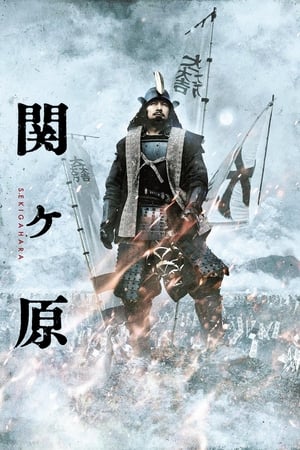 7.0
7.0Sekigahara(ja)
The background to and depiction of a watershed battle in Japanese history, at Sekigahara in 1600, when Tokugawa Ieyasu's Army of the East defeated the Army of the West of Ishida Mitsunari. The story includes the intrigues and shifting loyalties of the various retainers, family members, and samurai.
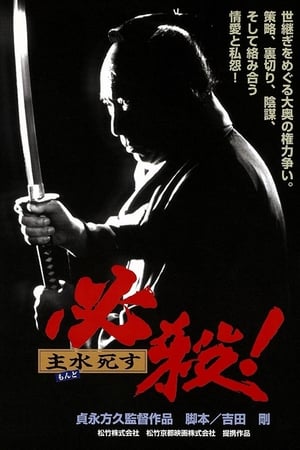 0.0
0.0Sure Death 6(ja)
When an artist dies, the official cause of death is judged to be a stroke, but his daughter suspects foul play. She recruits the services of an assassin, who by chance encounters an old friend...
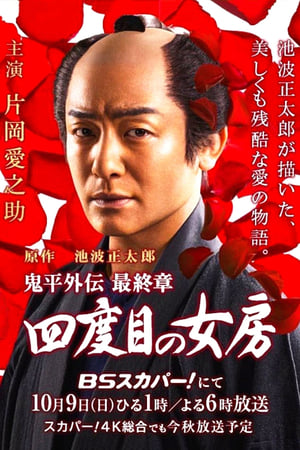 0.0
0.0Onihei side story: The Final Chapter - The Fourth Wife(ja)
Inomatsu, a carpenter with a reputation as a skilled craftsman, has a wife named Oritsu. Oritsu is deeply in love with Inomatsu and believes that the purpose of her life is to devote herself to her husband day and night. However, Oritsu is Inomatsu's fourth wife. In fact, he is a robber and thief. As a carpenter, Inomatsu usually sneaked into merchants' houses and carried out robberies. For him, wives are just a tool to deceive the public...
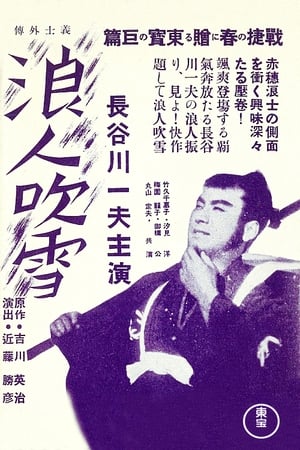 0.0
0.0Blizzard Ronin(ja)
The film tells about the life of the former vassal of the Ako clan - Fuwa Katsuemon Masatane.
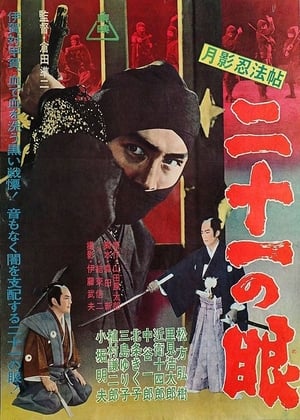 0.0
0.0Moonshadow Ninja Scroll: Twenty-One Eyes(ja)
A wave of terror is threatening to unseat Shogun Yoshimune. Police stations are erupting into flames, convicts escaping from prison, houses robbed and vandalized, streets teeming with panicked citizens. Is Ijyuin Tanomo, highly-placed official of Owari clan, secretly using deadly ninja to foment riot and rebellion? Narumiya Shinbei, a lone samurai spy adept at ninjutsu must uncover the hidden hand orchestrating these shocking crimes. Shinbei enlists a small band of dedicated ninja to lay siege to the enemy’s stronghold, where his own sister works as an undercover agent. Now, ninja must fight ninja in a last desperate battle to save the shogunate.
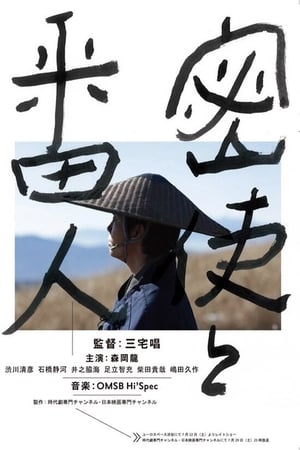 6.3
6.3The Courier(ja)
At the beginning of the 19th century, Japan was under a policy of national isolation. A group of Dutch scholars who wanted to open the country secretly completed a copy of a map of Japan under shogunate control. They sent a young Dutch scholar, Michi-an, as a secret envoy to deliver the copy of the map to the Dutch. Michi-an, hiding himself and making his way through the deserted winter mountains, but the mountain guardians, led by Takayama, had begun hunting in the mountains with a description of Michi-an's appearance arranged by the shogunate.
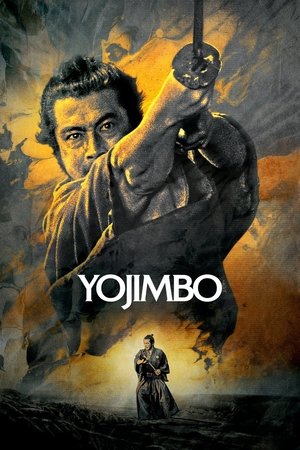 8.1
8.1Yojimbo(ja)
A nameless ronin, or samurai with no master, enters a small village in feudal Japan where two rival businessmen are struggling for control of the local gambling trade. Taking the name Sanjuro Kuwabatake, the ronin convinces both silk merchant Tazaemon and sake merchant Tokuemon to hire him as a personal bodyguard, then artfully sets in motion a full-scale gang war between the two ambitious and unscrupulous men.
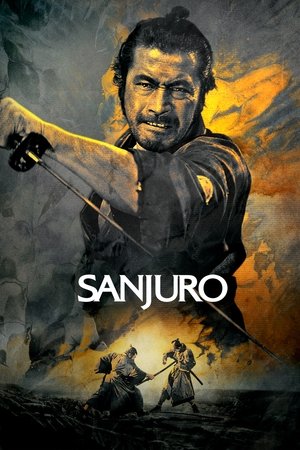 7.9
7.9Sanjuro(ja)
Toshiro Mifune swaggers and snarls to brilliant comic effect in Kurosawa's tightly paced, beautifully composed "Sanjuro." In this companion piece and sequel to "Yojimbo," jaded samurai Sanjuro helps an idealistic group of young warriors weed out their clan's evil influences, and in the process turns their image of a proper samurai on its ear.
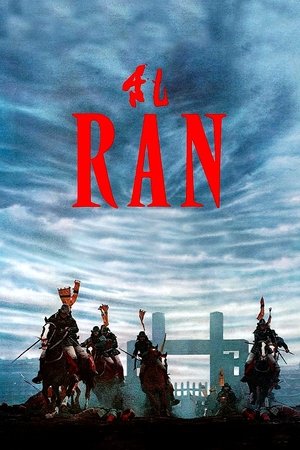 8.1
8.1Ran(ja)
With Ran, legendary director Akira Kurosawa reimagines Shakespeare's King Lear as a singular historical epic set in sixteenth-century Japan. Majestic in scope, the film is Kurosawa's late-life masterpiece, a profound examination of the folly of war and the crumbling of one family under the weight of betrayal, greed, and the insatiable thirst for power.
 6.5
6.5Migawari Mission(ja)
Kozukenosuke Kira is slashed with a sword by Ako Daimyo, who holds deep contempt towards Kozukenosuke Kira. Ako Daimyo then kills himself. Both of their families now fall into a big crisis. At this time, a vassal for the Kira family comes up with an extraordinary solution. The plan calls for Takaaki Kira, who is the younger brother of Kozukenosuke Kira, to pretend he is his older brother and deceive the shogunate. Takaaki Kira looks virtually identical to his older brother.
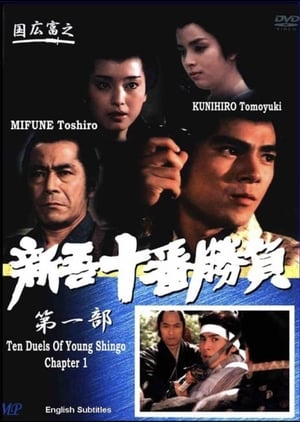 3.5
3.5Ten Duels of Young Shingo: Chapter 1(ja)
The classic tale of the shogun's illegitimate son Aoi Shingo is told in three parts as he strives to become the greatest fencer in Japan, while his father Shogun Tokugawa Yoshimune seeks to reunite with his lost son. Part 1 sets up the story and introduces the characters. When the secrets of Shingo's birth are revealed to him, it sets off a series of events that bring him to cross swords with members of the shogun's inner circle.
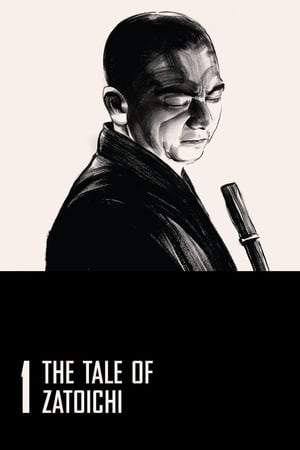 7.3
7.3The Tale of Zatoichi(ja)
The adventures of a blind, gambling masseur and master swordsman. Zatoichi targets a yakuza-controlled village, because war with a neighbouring town's smaller gang is brewing.

